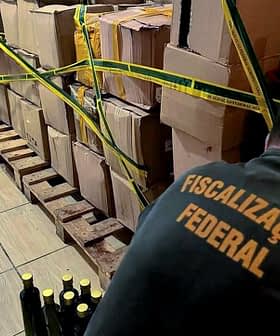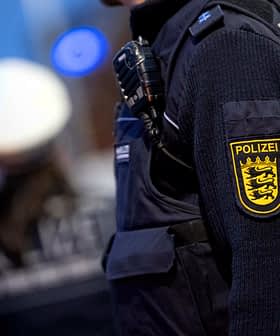Europe Launches 'Knowledge Centre' To Tackle Food Fraud
The Knowledge Centre for Food Fraud and Quality has been set up in response to consumer concerns about food products most susceptible to tampering or adulteration like olive oil, wine, honey, dairy, fish, meat and poultry.
The European Commission has launched a new information-sharing system to tackle the issue of food fraud and quality in the European Union.
The quality of the food we eat is important to all of us, and because food fraud is a transnational criminal activity, the EU has a clear role to play in the response.
Called a “knowledge centre” and operated by the European Commission’s Joint Research Centre, this is the newest of five such centers that bring together internal and external experts to tackle a certain issue.
The Knowledge Centre for Food Fraud and Quality has been set up in response to consumer concerns about food products most susceptible to tampering or adulteration like olive oil, wine, honey, dairy, fish, meat and poultry.
The center was launched at the European Parliament in Strasbourg, France on March 13 by Tibor Navracsics, the Commissioner for Education, Culture, Youth and Sport.
“Food is one area where science can very directly and tangibly demonstrate the benefits it brings to citizens,” Navracsics declared at the opening. “The quality of the food we eat is important to all of us, and because food fraud is a transnational criminal activity, the EU has a clear role to play in the response.”
The center’s activities will include coordinating market surveillance activities, operating systems for early warning and information on food fraud, and linking the information systems of the European Commission and EU member states.
“The launch of the Knowledge Centre for Food Fraud and Quality is an important step,” Navracsics added. “It will help protect the integrity of the EU food chain and safeguard the quality of food products, generating a clear added-value for Europeans.”
When cases of food fraud are uncovered, consumer trust is damaged and it affects the farmer-to-retailer food supply chain as a result. An example of food fraud includes the horse meat scandal that hit Europe in 2013 when it was discovered that many meat products labeled beef contained horse meat.
But there are also cases of dishonest marketing practices like recent revelations into “dual quality” where products of the same brand and packaging actually contain different ingredients in different countries.
In tests commissioned by a Croatian Member of European Parliament, food products of the same brand were tested in Croatia and Germany and found to contain ingredients of differing quality or quantity.
The Knowledge Centre is working on methods to test dual-quality products to step up the fight against such practices.
Olive oil is the most adulterated food product in the European Union because it’s a high-value product with high demand but limited in supply. Fraudsters mix it with low-quality or other vegetable oils like sunflower and misleadingly label it as extra virgin.







